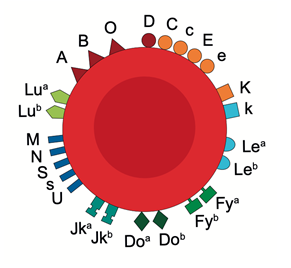Transfusion Dependent Anaemias

In the UK, there are approximately 14,000 patients with sickle cell disease (SCD), 1,000 patients with thalassaemia (THAL) and 2,000 patients with myelodysplasia (MDS). Many of these patients depend on regular treatment by blood transfusion to prevent a decline in their health or quality of life, although the extent of the dependence varies between individuals. Many other cohorts of patients are intermittently dependent on transfusion e.g. during a period of myeloablative chemotherapy. The health of many of these patients depends on access to and the need for blood transfusion, delivered in an emergency or as part of a long-term transfusion programme. Formation of antibodies (alloimmunisation) following blood transfusion is common and severe transfusion reactions can be life-threatening. At present, no real world data are collated on the complex and costly treatment pathways for transfusion dependent anaemias, including on transfusion requirements, optimal blood matching algorithms, clinical practice, and complications.
Aims of the NIHR HIC
The project aims to extract data on transfusion dependent patients from existing electronic data sources in the England’s major transfusion centres.
In the first instance, the project will collate data from NIHR HIC trusts to populate a data repository and to demonstrate the utility of such data collation for addressing the biological, clinical and economic challenges outlined above.
Collaborating Centres
University College London Hospitals NHS Foundation Trust (Lead Centre)
